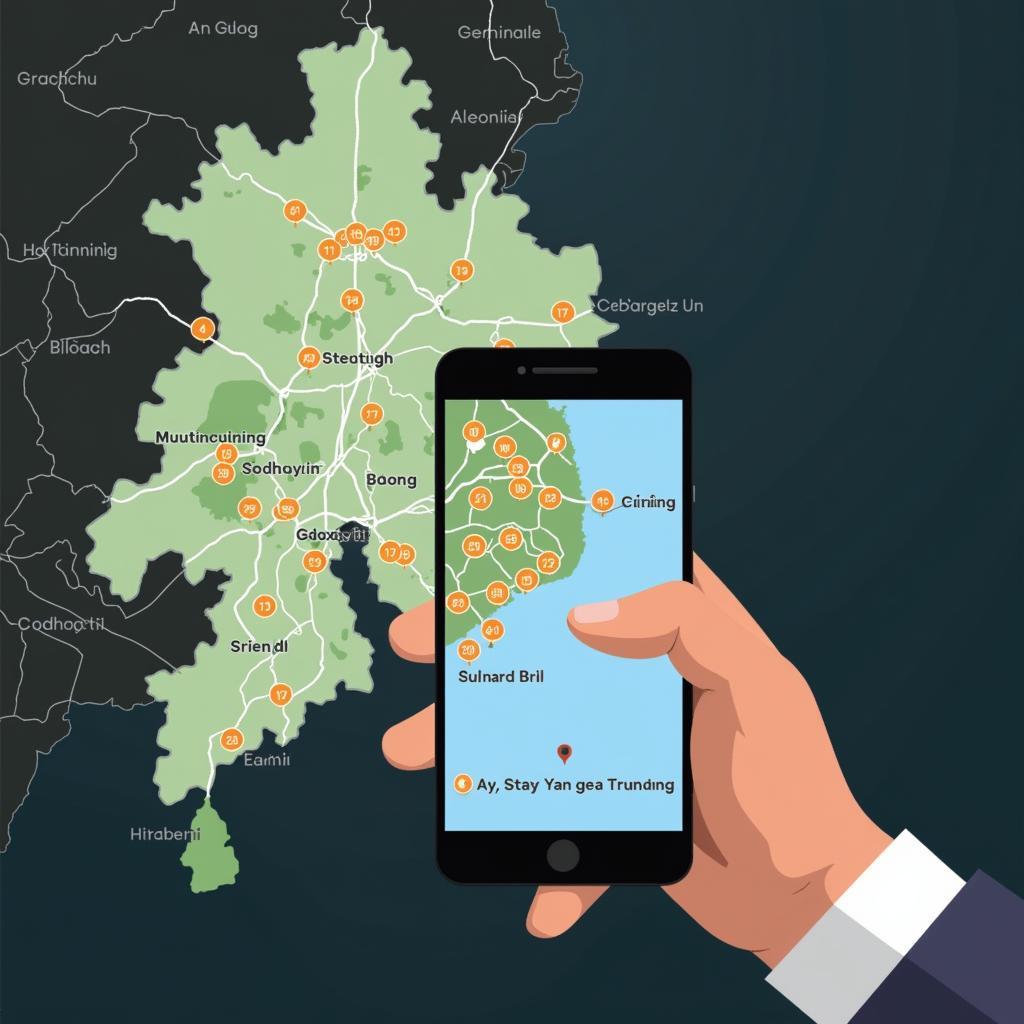Traveling broadens the mind, and what better way to solidify those memories than by writing about them in English? This guide provides practical tips and techniques for writing about your travel experiences effectively, from capturing vivid details to structuring your narrative.
Crafting a Compelling Travel Narrative
Writing about your travels is more than just listing places you’ve visited. It’s about sharing the experience, the emotions, and the insights gained. Whether you’re writing a blog post, a journal entry, or a short story, the goal is to transport your reader to that moment. Start by focusing on sensory details. What did you see, hear, smell, taste, and touch? Vivid descriptions engage the reader and make the experience more real.
Remember to include anecdotes. These little stories within your larger narrative add depth and personality to your writing. Did you have a funny encounter with a local? Did you get lost in a maze of cobblestone streets? These moments, often unplanned, are what make travel memorable.
Structuring Your Travel Writing
A well-structured narrative keeps your reader engaged. Consider starting with a hook that grabs their attention, setting the scene for your adventure. You can then chronologically detail your journey, weaving in descriptions, reflections, and anecdotes. Don’t be afraid to experiment with different narrative structures, like flashbacks or multiple perspectives.
If you’re looking for inspiration, check out travel blogs and articles. Observe how experienced writers structure their narratives and use language to create immersive experiences. Many travel writers find inspiration in other genres as well, borrowing techniques from fiction and memoir to enhance their storytelling. địa điểm du lịch vĩnh long
Essential Tips for Writing About Your Travels in English
- Use strong verbs and evocative adjectives: Instead of “The mountains were big,” try “The majestic mountains loomed over us.”
- Show, don’t tell: Instead of “The food was delicious,” describe the specific flavors and textures.
- Be authentic: Write in your own voice and share your genuine experiences. Don’t try to imitate others.
- Proofread carefully: Errors in grammar and spelling can distract your reader.
Overcoming Writer’s Block and Finding Inspiration
Writer’s block is common, even for experienced writers. If you’re struggling to get started, try freewriting. Just start writing whatever comes to mind, without worrying about grammar or structure. This can help to unlock your creativity and get the words flowing. Another helpful technique is to focus on a specific moment or detail from your trip. What stands out in your memory? Use that as a starting point and build your narrative around it. You might find it helpful to browse travel photographs or listen to music that reminds you of your trip. lịch học của học sinh trung quốc
“The key to compelling travel writing is to evoke emotion and create a connection with the reader,” says Jane Doe, travel writer and author of “Wandering the World.”
Mastering Vocabulary and Grammar for Travel Writing
While using descriptive language is important, don’t overuse complex vocabulary. Clear and concise writing is always preferable. Focus on using words that accurately convey your meaning and enhance the reader’s understanding. If you’re unsure about a particular word or phrase, look it up online or consult a dictionary. Practice regularly to improve your grammar and vocabulary.
“Don’t be afraid to experiment with different writing styles and find what works best for you,” advises John Smith, editor of “Travel Tales Magazine.”
Writing about your travels in English is a rewarding way to preserve memories, improve your language skills, and share your experiences with the world. By following these tips, you can craft compelling travel narratives that captivate your audience. khu du lịch lam kinh Remember to practice regularly, embrace creativity, and enjoy the journey of writing. khu du lịch suối tiên nha trang các khu du lịch ở hội an
Conclusion: Writing about your travels in English offers a unique opportunity to document your adventures, improve your language skills, and share your experiences. Remember to focus on vivid descriptions, engaging anecdotes, and a clear narrative structure to captivate your audience and bring your travels to life on the page.
FAQ:
- How can I improve my travel writing vocabulary?
- What are some common mistakes to avoid in travel writing?
- How do I structure a travel blog post?
- What are some good resources for travel writing inspiration?
- How do I overcome writer’s block when writing about my travels?
- What’s the best way to describe a place in English?
- How can I make my travel writing more engaging?
Mô tả các tình huống thường gặp câu hỏi: Nhiều người gặp khó khăn khi bắt đầu viết về chuyến du lịch. Họ không biết phải bắt đầu từ đâu, sắp xếp ý tưởng như thế nào, hay dùng từ vựng nào cho phù hợp.
Gợi ý các câu hỏi khác, bài viết khác có trong web: Bạn có thể tham khảo thêm các bài viết về địa điểm du lịch, lịch trình du lịch, và kinh nghiệm du lịch trên website của chúng tôi.
Kêu gọi hành động: Khi cần hỗ trợ hãy liên hệ Số Điện Thoại: 02033846556, Email: [email protected] Hoặc đến địa chỉ: 178 Ba Lan, Giếng Đáy, Hạ Long, Quảng Ninh, Việt Nam. Chúng tôi có đội ngũ chăm sóc khách hàng 24/7.


